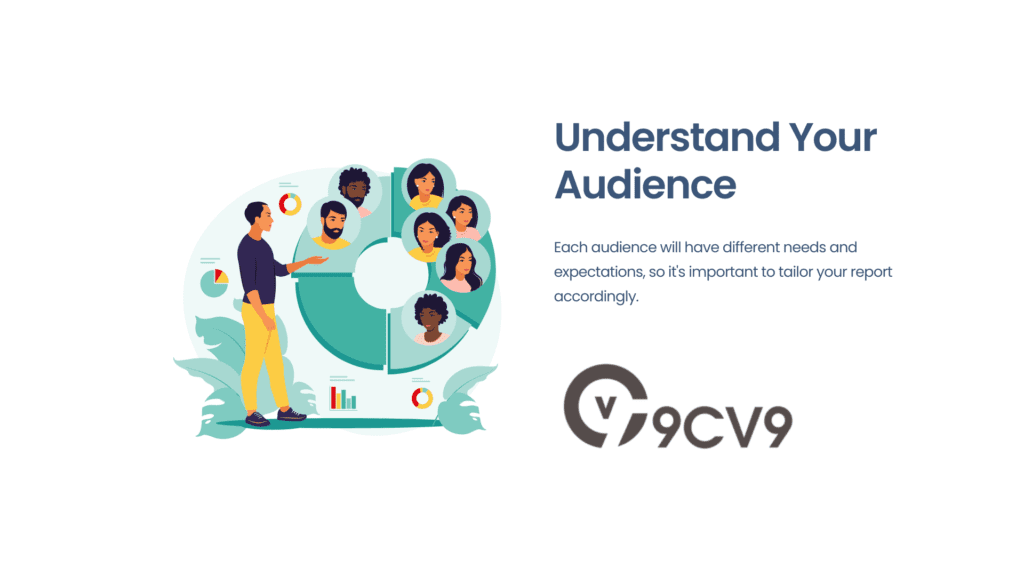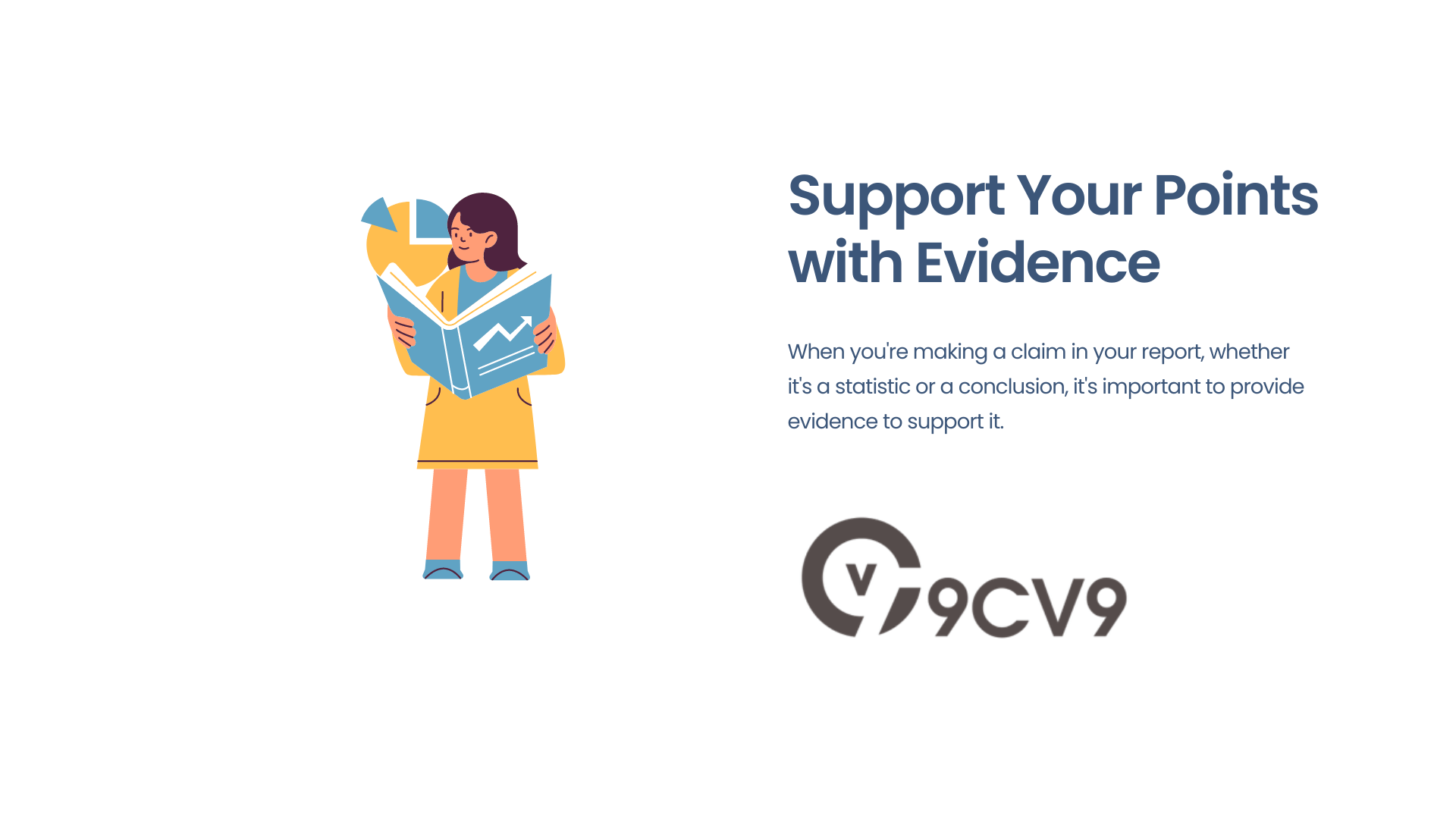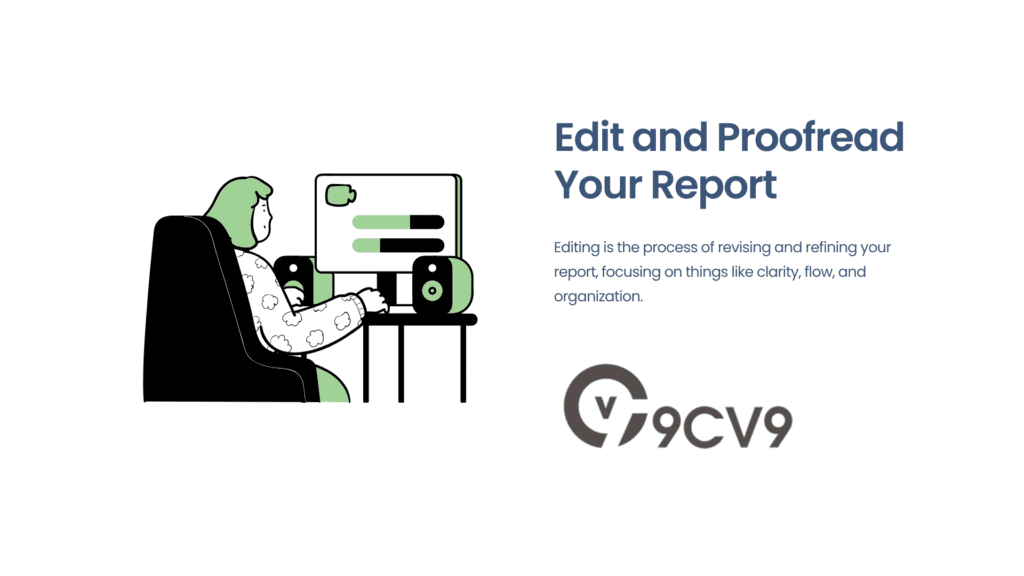Key Takeaways
- Understand your audience to create content that resonates with them.
- Plan and organize your ideas to create a solid structure for your report.
- Edit and proofread your report to ensure it’s polished and error-free.
Greetings, fellow report writers.
Are you tired of submitting reports that leave your boss scratching their head, wondering if you even speak the same language?
Do you dread writing reports because you know they’ll be about as clear as a mud puddle after a rainstorm?
Fear not, my friends.
With these 5 essential tips, you’ll be on your way to writing reports that not only make sense but might even be enjoyable to read (gasp!).
Let’s face it, report writing isn’t exactly the most exciting task on your to-do list.
It’s like going to the dentist, but instead of getting your teeth cleaned, you’re trying to organize your thoughts and findings into a coherent document.
But, just like going to the dentist, it’s something that needs to be done if you want to keep your career on track.
So, grab a cup of coffee (or something stronger, we don’t judge), and let’s dive into these 5 essential tips to improve your report writing skills.
By the end of this post, you’ll be armed with the knowledge and tools to write reports that will have your boss singing your praises and your colleagues asking for your secrets.
Before that, why is report writing important?
Importance of Having Good Report Writing Skills

Let’s face it, report writing may not be the most exciting task on your to-do list.
But, whether you’re in business, academia, or any other field, it’s an essential skill to have.
Reports are used to communicate important information, make decisions, and persuade others.
So, if your reports are poorly written, you risk being misunderstood, ignored, or worse, laughed at by your colleagues.
But don’t worry, there’s hope.
By improving your report writing skills, you can make sure your reports are clear, concise, and effective.
You’ll be able to communicate your ideas with confidence, and your colleagues will appreciate your well-organized and well-written reports.
Plus, you’ll save yourself from the embarrassment of having your boss call you out for sloppy writing or, heaven forbid, typos.
Report writing skills are especially crucial in today’s fast-paced, information-driven world.
With so much information at our fingertips, people have become accustomed to receiving information quickly and efficiently.
Your reports need to be able to cut through the noise and deliver the information in a way that is easily digestible and understandable.
And if you can do it with a touch of humor, all the better.
So, if you want to be taken seriously and have your ideas heard, it’s time to brush up on your report-writing skills.
Don’t be afraid to ask for feedback, take a writing course, or use the tips we’ve outlined in this blog post.With a little effort, you’ll be well on your way to becoming a report-writing superstar.
Before we venture further into this article, we like to share who we are and what we do.
About 9cv9
9cv9 is a business tech startup based in Singapore and Vietnam with a strong presence worldwide.
With over six years of startup and business experience, and being highly involved in connecting with thousands of companies and millions of jobseekers, the 9cv9 team has listed some important learning points in this overview of how to write the best report using the 5 tips we have.
If you are looking for a job, we welcome you to apply for a job at 9cv9 now.
5 Essential Tips to Improve Your Report Writing Skills (Updated in 2023)
- Understand Your Audience
- Plan and Organize Your Ideas
- Use Clear and Concise Language
- Support Your Points with Evidence
- Edit and Proofread Your Report
Tip #1: Understand Your Audience

Ah, yes. Understanding your audience.
It’s like the golden rule of communication.
You wouldn’t use the same language to explain something to a five-year-old as you would to a seasoned professional, right?
Same goes for report writing.
Before you start typing away, take a moment to think about who will be reading your report.
Is it your boss? Your colleagues? A client?
Each audience will have different needs and expectations, so it’s important to tailor your report accordingly.
You don’t want to bore your boss with a laundry list of technical jargon they won’t understand, just like you don’t want to oversimplify things for a client who needs all the nitty-gritty details.
So, how do you go about understanding your audience?
It’s not like you can read their minds (although that would be pretty cool).
The first step is to identify who your audience is.
Are they experts in your field, or are they laypeople who need things explained in simpler terms?
Are they familiar with your organization and its policies, or do they need a bit of background information?
Once you’ve identified your audience, think about what they need to know and how they need to know it.
Do they need a summary of findings, or a detailed breakdown of each step of the process?
Do they need graphs and charts to help them visualize the data, or would they prefer a more narrative style?
And remember, just because you’re writing a report doesn’t mean it has to be dry and boring.
You can still inject a bit of personality into your writing, as long as it’s appropriate for your audience.
For example, if you’re writing a report for a fun-loving start-up, you might be able to get away with a few puns or jokes (emphasis on “few”).
By taking the time to understand your audience and tailor your report to their needs, you’ll not only make their lives easier, but you’ll also make yourself look like a report-writing rockstar.
And who doesn’t want that?
Tip #2: Plan and Organize Your Ideas

Ah, the good ol’ planning stage.
It’s like the warm-up before a workout.
You might be tempted to skip it and jump right into the main event, but trust us, taking the time to plan and organize your ideas will pay off in the end.
Think of it as laying the groundwork for your report.
First things first, start with a clear objective. What do you want your report to achieve?
Do you want to present findings, propose solutions, or simply inform your audience?
Once you’ve nailed down your objective, start brainstorming ideas and information that support it.
Don’t worry about organizing everything just yet, just get everything down on paper (or computer screen).
Now comes the fun part – organizing your ideas.
There are a few different approaches you can take here.
One popular method is to create an outline, breaking your report down into sections and subsections.
This helps you ensure that all of your ideas are organized and presented in a logical order.
Plus, it gives you a roadmap to follow as you write your report, which can make the whole process feel less overwhelming.
Another approach is to use visual aids like mind maps or flowcharts.
This can be particularly helpful if you’re struggling to see how your ideas fit together.
Plus, it’s a bit more fun than staring at a blank page.
Of course, everyone has their own preferred method of organization, so find what works best for you.
The key is to make sure that your report is easy to follow and that your ideas flow logically from one section to the next.
And, as with any good workout, don’t forget to take breaks.
Sometimes stepping away from your report for a bit can help you come back with a fresh perspective and renewed energy.
By taking the time to plan and organize your ideas, you’ll be well on your way to writing a report that’s clear, concise, and easy to follow.
Plus, you’ll feel like a total organizational ninja. And who doesn’t want that?
Tip #3: Use Clear and Concise Language

Let’s face it, nobody likes reading a report that’s filled with jargon and convoluted language.
It’s like trying to navigate a maze blindfolded – frustrating, confusing, and ultimately unproductive.
That’s why tip number three is all about using clear and concise language.
When writing your report, it’s important to remember that your audience may not be as familiar with your industry or topic as you are.
That means you need to explain things in a way that’s easy for them to understand.
Avoid using technical terms or jargon unless you’re sure your audience will be familiar with them.
If you do need to use a technical term, make sure you define it clearly and concisely.
Another key to using clear and concise language is to keep your sentences short and to the point.
Don’t try to impress your audience with long, complicated sentences. Instead, aim for simple, straightforward language that gets your message across quickly and effectively.
And speaking of getting your message across, don’t bury the lede!
Make sure your most important information is front and center, so your audience doesn’t have to wade through a sea of words to find what they’re looking for.
Use headings, bullet points, and other formatting tools to help break up your text and make it easier to scan.
Of course, that’s not to say you can’t inject a bit of personality into your writing.
In fact, using humor or anecdotes can be a great way to engage your audience and make your report more enjoyable to read.
Just make sure that your jokes are appropriate for your audience and don’t distract from the main message.
In summary, using clear and concise language is essential to writing a report that’s easy to understand and engaging to read.
By avoiding jargon, keeping your sentences short and to the point, and using formatting tools to break up your text, you’ll be well on your way to report-writing success.
Plus, your audience will thank you for sparing them the headache of deciphering complex language.
Tip #4: Support Your Points with Evidence

Let’s face it, we’ve all been there – reading a report that makes big claims without any evidence to back them up.
It’s like hearing a conspiracy theory without any proof – it might be entertaining, but it’s not exactly convincing.
That’s why tip number four is all about supporting your points with evidence.
When you’re making a claim in your report, whether it’s a statistic or a conclusion, it’s important to provide evidence to support it.
This can include data, research studies, expert opinions, or even personal anecdotes (as long as they’re relevant, of course).
Providing evidence not only makes your report more credible, but it also shows that you’ve done your homework and are knowledgeable about your topic.
It can also help your audience understand your point of view and come to the same conclusion you have.
But, here’s the catch – not all evidence is created equal.
You want to make sure that the evidence you use is reliable, up-to-date, and relevant to your topic.
Be wary of using outdated studies or sources with a questionable reputation.
And always fact-check your information before including it in your report.
Another important factor to consider is how you present your evidence.
You want to make sure it’s clear and easy to understand, and that it supports your point without overwhelming your audience.
Try using charts, graphs, or other visual aids to help illustrate your point, but be careful not to go overboard – you don’t want your report to look like a kindergarten art project.
In summary, supporting your points with evidence is essential to writing a report that’s credible, convincing, and informative.
By using reliable and relevant evidence, presenting it clearly and effectively, and fact-checking your information, you’ll be well on your way to report-writing success.
And who knows, maybe you’ll even convince a few skeptics along the way.
Tip #5: Edit and Proofread Your Report

Ah, the dreaded editing and proofreading stage.
It’s like the broccoli of the report-writing process – we know it’s good for us, but we still don’t want to do it.
But trust us, tip number five is all about why editing and proofreading your report is essential to success.
First things first – editing and proofreading are not the same thing.
Editing is the process of revising and refining your report, focusing on things like clarity, flow, and organization.
Proofreading, on the other hand, is the process of checking for spelling, grammar, and punctuation errors.
Both of these stages are important, and you’ll want to do them separately to avoid overwhelming yourself.
Start with editing – read through your report with a critical eye, looking for any areas that are unclear, redundant, or off-topic.
Make sure your arguments are logically structured, and that your evidence supports your conclusions.
And don’t be afraid to cut anything that isn’t necessary – sometimes less is more.
Once you’re happy with your editing, it’s time to move on to proofreading.
This is where you’ll need to channel your inner grammar nerd and scrutinize every sentence for errors.
Watch out for common mistakes like misspellings, homophones, and misplaced apostrophes.
And don’t forget to check your formatting, too – a poorly formatted report can be just as distracting as a spelling mistake.
Of course, editing and proofreading can be tedious and time-consuming.
But think of it this way – it’s like going to the gym.
You might not want to do it, but once you’re done, you’ll feel great and your report will look and sound so much better.
Plus, it shows your audience you’re serious about your work and committed to delivering high-quality content.
Editing and proofreading your report is essential to ensuring that it’s clear, concise, and error-free.
By taking the time to revise and refine your content, and checking for any mistakes or typos, you’ll be presenting a professional and polished report to your audience.
So, put on your editor’s hat, grab a cup of coffee, and get to work – your report (and your readers) will thank you for it.
Conclusion
You’ve made it to the end of our report writing journey, and you’re now armed with five essential tips to take your writing skills to the next level.
Whether you’re a seasoned report writer or just starting out, these tips will help you produce clear, concise, and effective reports that get the job done.
To recap, we started by talking about understanding your audience – knowing who you’re writing for is crucial to creating content that resonates with them.
Next, we looked at planning and organizing your ideas – a solid structure is the backbone of any good report.
Then, we tackled the importance of using clear and concise language – after all, you don’t want to bore your readers with unnecessary jargon.
Tip number four reminded us to support our points with evidence – facts and figures are powerful tools in convincing your audience of your argument.
And finally, we wrapped up with the all-important task of editing and proofreading – a step that may not be fun but is essential to ensuring that your report is polished and error-free.
Now, armed with these tips, it’s time to put them into practice.
Remember, report writing is a skill that takes time and effort to master. But with practice, you’ll soon find yourself producing reports that are clear, concise, and effective.
So, go forth and write those reports! And if all else fails, just remember – a good joke or two can go a long way in keeping your readers engaged (as long as it’s appropriate, of course).
Happy writing.
If you find this article useful, why not share it with your family and friends and also leave a nice comment below?
We, at the 9cv9 Research Team, strive to bring the latest and most meaningful data, guides, and statistics to your doorstep.
If you are looking for a report-writing job, then hop to 9cv9 Modern Job Portal to find the best jobs and internships to kickstart your ideal career path.































![Writing A Good CV [6 Tips To Improve Your CV] 6 Tips To Improve Your CV](https://blog.9cv9.com/wp-content/uploads/2020/06/2020-06-02-2-100x70.png)


